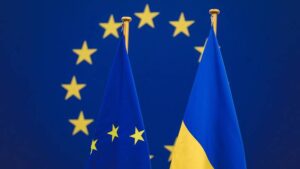
Oil prices almost do not change on Tuesday after the end of trading on the previous day with growth.
The cost of November futures for Brent crude on the London ICE Futures exchange by 8:30 am UTC is $92.08 per barrel, which is $0.08 (0.09%) higher than the closing price of the previous session. As a result of trading on Monday, these contracts rose by $0.65 (0.7%) to $92 per barrel.
The price of futures for WTI oil for October in the electronic trading of the New York Mercantile Exchange (NYMEX) fell by this time by $0.06 (0.07%), to $85.30 per barrel. By the close of the market on Monday, the value of these contracts increased by $0.6 to $85.36 per barrel.
The focus of traders this week is a number of meetings of the central banks in the world, including meetings of the Fed and the Bank of England. Fears related to the fact that the rapid tightening of monetary policy by the world’s central banks will lead to a recession in the global economy and a drop in oil demand are one of the key factors pushing down the oil market in recent months.
Meanwhile, a potential increase in supply in the market may also have a negative impact on oil prices. The administration of US President Joe Biden has announced that it will sell an additional 10 million barrels of oil from the strategic reserve, writes Bloomberg.
In addition, the UAE national oil company Adnoc announced measures to increase production to 5 million barrels of oil per day by 2025 from the current 3.4 million barrels per day.
Meanwhile, refineries in China have submitted bids to supply an additional 15 million tons of petroleum products as part of the export quota, which could increase the supply of fuel in the world.

British Prime Minister Liz Truss will announce during a trip to the United States this week that London intends to spend at least $2.6 billion to support Ukraine in 2023, the Financial Times reports.
On her first trip abroad as prime minister, Liz Truss will tell world leaders that Britain will spend same $2.6 billion in Ukraine next year as it did in 2022, or even more, the publication writes.
Truss is expected to speak at the UN General Assembly on Wednesday. The prime minister is also scheduled to hold talks with U.S. President Joe Biden and French President Emmanuel Macron.
Downing Street previously stated that the UK ranks second in the world in terms of military aid provided to Ukraine. In particular, the Financial Times reminds, London handed over hundreds of missiles, five air defense systems, 120 armored vehicles, tens of thousands of artillery shells to Kyiv. Also, since 2015, the British have trained 27,000 Ukrainian servicemen.

On Tuesday, the EU Council officially decided to provide Ukraine with an urgent additional macro-financial assistance (MFA) in the amount of 5 billion euros, the press service of the European Council reports.
“On September 9, EU finance ministers agreed on a statement in support of this additional €5 billion assistance to Ukraine at an informal meeting of the Ecofin Council in Prague. Today, this additional assistance was formally accepted after the necessary formal steps were completed in just 11 days,” he said. the message says.
It clarifies that this financial assistance is in addition to other European Union support to Ukraine already provided in the humanitarian, customs, defense and development sectors.

Even the most “hawkish” policy of the US Federal Reserve over the past decades cannot suppress the enthusiasm of the gold mining industry, writes Bloomberg.
According to a survey of participants in the industry’s largest annual meeting, the Denver Gold Forum, they expect the price of the precious metal to rise to $1,806 per ounce by the end of this year. This is 7.8% higher than the level at the close of trading on Monday. The last time gold rose above $1,800 an ounce was in early July.
Investors from all over the world, including central banks, still want to make strategic investments in gold, notes Joseph Cavatoni of the World Gold Council. “In addition, geopolitical risks will keep gold at the center of every investor’s attention,” he said.
Gold prices held above $1,700 an ounce for most of September but fell last week on expectations that the Federal Reserve would raise interest rates by at least 75 basis points on Wednesday.
The tightening of monetary policy to curb inflation led to an increase in interest rates and an increase in the US national currency. Both are bad news for gold. “The choice is clearly in favor of the US dollar,” said the chief executive officer of Wheaton Precious Metals Corp. Randy Smallwood.
However, gold is supported by geopolitical tensions in the world, including a full-scale war unleashed by Russia against Ukraine. The energy crisis in Europe and China’s “zero tolerance” policy in the fight against COVID-19 indicate the likelihood of a slowdown in the global economy, which could also encourage investors to increase their investment in gold as insurance, Bloomberg notes.
“This is a defensive asset during a period of macroeconomic and geopolitical uncertainty,” said the executive chairman of Yamana Gold Inc. Peter Marrone.
December contracts for gold on the NYMEX rose 0.3% during trading on Tuesday – up to $1682.9 per ounce.

More than 300 domestic manufacturers have already registered on the first marketplace of Ukrainian clothing and footwear brands shopping.ua, co-founder of the shopping.ua platform Serhiy Azarenka told Interfax-Ukraine.
“The war had a great impact on representatives of the clothing industry in Ukraine. We constantly analyze the market, we see how difficult it is for Ukrainian manufacturers today. Our platform was created for true connoisseurs of made in Ukraine,” Azarenka said.
According to him, the portal was launched during the war, in April 2022. It was the war that prompted people to give people the opportunity to buy Ukrainian in different regions, the expert explains.
He clarified that in total before the war, 1,600 sewing enterprises operated in Ukraine, a significant part of which is located in the north-eastern region of the country: in Sumy, Chernihiv and Kharkiv regions. These regions were the first to be hit by the enemy.
“The producers of Kharkiv, the most affected by constant shelling and power outages, are already gradually recovering,” Azarenka said.
Overall, he estimates that approximately 60% of companies in the industry have either closed or are operating with interruptions. The reason is not only in the destruction, but also in the absence of orders, the expert notes.
“The marketplace will allow Ukrainians to support a Ukrainian manufacturer, which will have a positive impact on the economy of Ukraine as a whole,” Azarenka is convinced.
Currently, the marketplace offers author’s collections of famous designers, promotional offers from brands such as CAT ORANGE, Jadone Fashion, Tuto Vzuto, Egostyle, MAN’s SET, Amulet, Sofia Shelest, Aura Shoes, etc.
Any domestic clothing and footwear manufacturer can join the platform. To connect, it is enough to provide an extract from the unified state register of taxpayers. Registration and placement of goods on the marketplace are free.

A large Ukrainian manufacturer of corrugated cardboard – Poninkovskaya Cardboard and Paper Factory-Ukraine (“PKBF-Ukraine”, Khmelnytsky region) produced products worth UAH 1 billion 526 million in January-August, which is 12.2% more than in the same period of 2021 of the year.
According to the statistics of the UkrPapir association provided to the Interfax-Ukraine agency, in physical terms, the factory reduced the production of containerboard (including corrugating paper) by 19.2% – to 48.3 thousand tons, and by 17.6% corrugated boxes from it – up to 43.1 million square meters. m.
At the same time, paper production increased by 72% – up to 381 tons.
At the same time, in August, the production of corrugated packaging by the factory decreased by 9% compared to August 2021, to 6.9 million square meters. m, paper and cardboard – by 2%, up to 8.1 thousand tons.
The Ponikovskaya Factory (formerly the Ponikovsky Cardboard and Paper Mill), once the largest manufacturer of school notebooks, currently has one main production – paper and cardboard, mainly produces corrugated packaging, as well as wrapping, waste paper.
The factory is part of the United Cardboard Company-Ukraine (UCC, Lutsk), whose production assets include, in particular, Lutsk KBF-Ukraine (Volyn region), which reduced the production of cardboard by 22% in January-August – to 33, 4 thousand tons.
As reported with reference to data collected by the association from industry companies, in January-August, taking into account the fact that a number of enterprises in the industry were either destroyed or damaged or located in the occupied territory, the production of paper and cardboard in Ukraine decreased by 43.2% compared to with the same period last year – up to 336.7 thousand tons, corrugated packaging – by 42.2%, up to 282.3 million square meters. m.